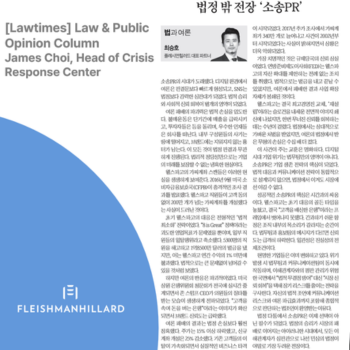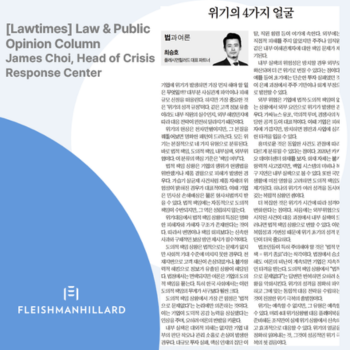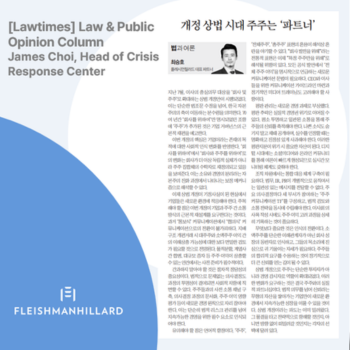In recent discussions, attention has centered on addressing the ‘Korean Discount’ by government and capital market stakeholders in Korea. Wang Yang, who leads the Center for Stakeholder Engagement at FleishmanHillard Korea, provides strategic insights into the heightened shareholder activism during this AGM season. He analyzes their principal agendas and suggests strategies and communication guides for corporations to effectively respond.
Activist shareholders are increasingly engaging with companies to advocate for enhanced shareholder rights, improved governance, and increased shareholder value. These efforts aim to promote transparency and open communication between companies and shareholders, seeking to create value for all stakeholders. It is crucial for companies to actively engage in dialogues with shareholders and stakeholders to understand their perspectives and develop strategies that enhance corporate and shareholder interests. Such engagement is fundamental to fostering a robust capital market that benefits all parties involved.
In Korea, activist funds mainly focus on governance improvements, stronger shareholder return policies, and business restructuring. The agendas are expected to highlight governance reforms, share buybacks/retirements, board appointments, and dividend policy improvements. However, the tactics of activist funds are sometimes viewed negatively by companies, perceived as prioritizing short-term gains, interfering in management, escalating costs, creating conflicts of interest, and destabilizing the market.
To address these challenges, companies should adopt the following communication strategies for effective shareholder engagement:
- Reputation Management: Manage the reputational impact of activism through strategic stakeholder communications.
- Clear Communication Objectives: Set explicit goals to secure shareholder support for the board of directors’ agendas at shareholder meetings.
- Stakeholder-Centric Communication: Tailor messages to the interests of voting investors in proxy contests.
- Investor Relations: Maintain ongoing dialogues with key investors, both domestically and internationally, to demonstrate efforts to enhance shareholder value, especially during the proxy season.
- Proxy Advisors Engagement: Engage timely and proactively with proxy advisors, as domestic and international investors often rely on their recommendations.
- Governance Trend Monitoring: Stay informed about governance experts’ and organizations’ concerns, recommendations, and trends to integrate their insights into corporate strategy.
For active investors and activist funds, the following are critical for promoting corporate and shareholder value in the mid- to long-term:
- Propose reasonable shareholder proposals reflecting the company’s growth potential and performance; focusing solely on increasing returns may hinder long-term growth.
- Encourage collaboration with companies, avoiding unilateral demands that could lead to resistance.
- Align activities with shareholder and public interests, emphasizing the benefits to shareholders.
Find Out More
-
Battleground Outside the Courtroom: 'Litigation PR'
September 10, 2025
-
Four Faces of a Crisis
August 27, 2025
-
Embracing shareholders as partners and growing together
August 20, 2025


